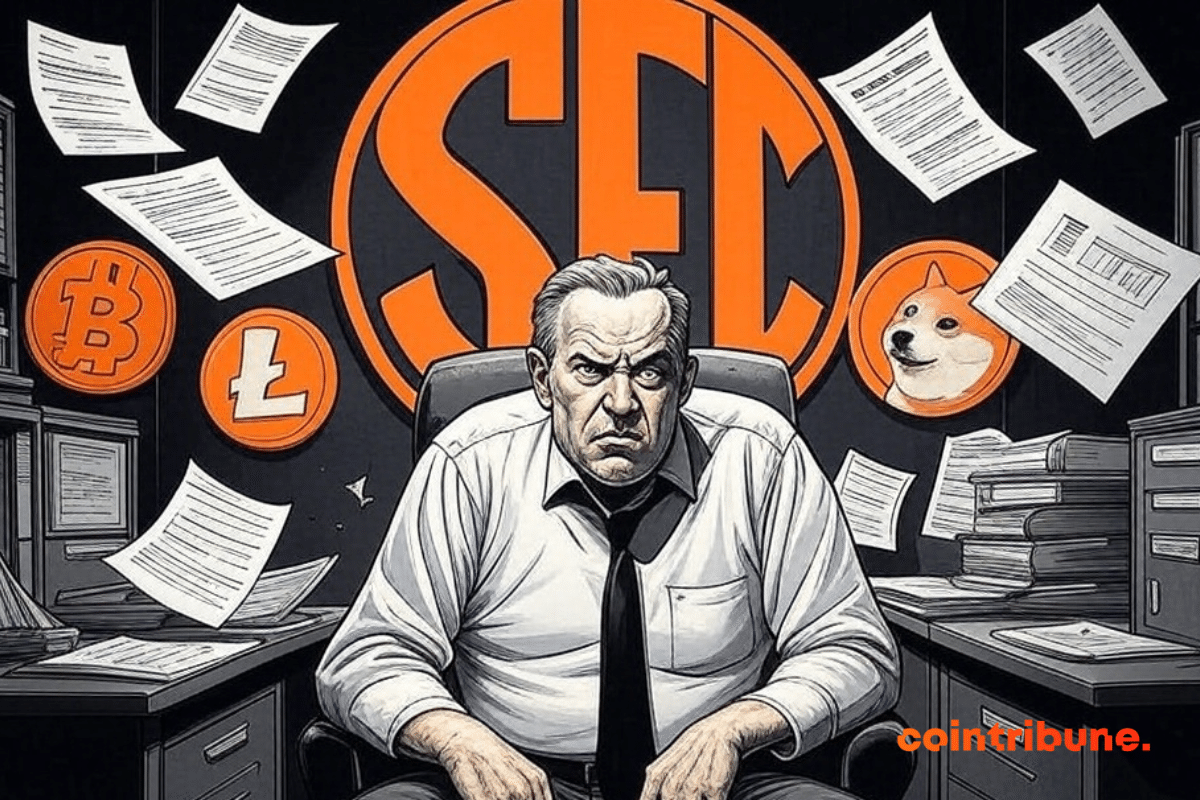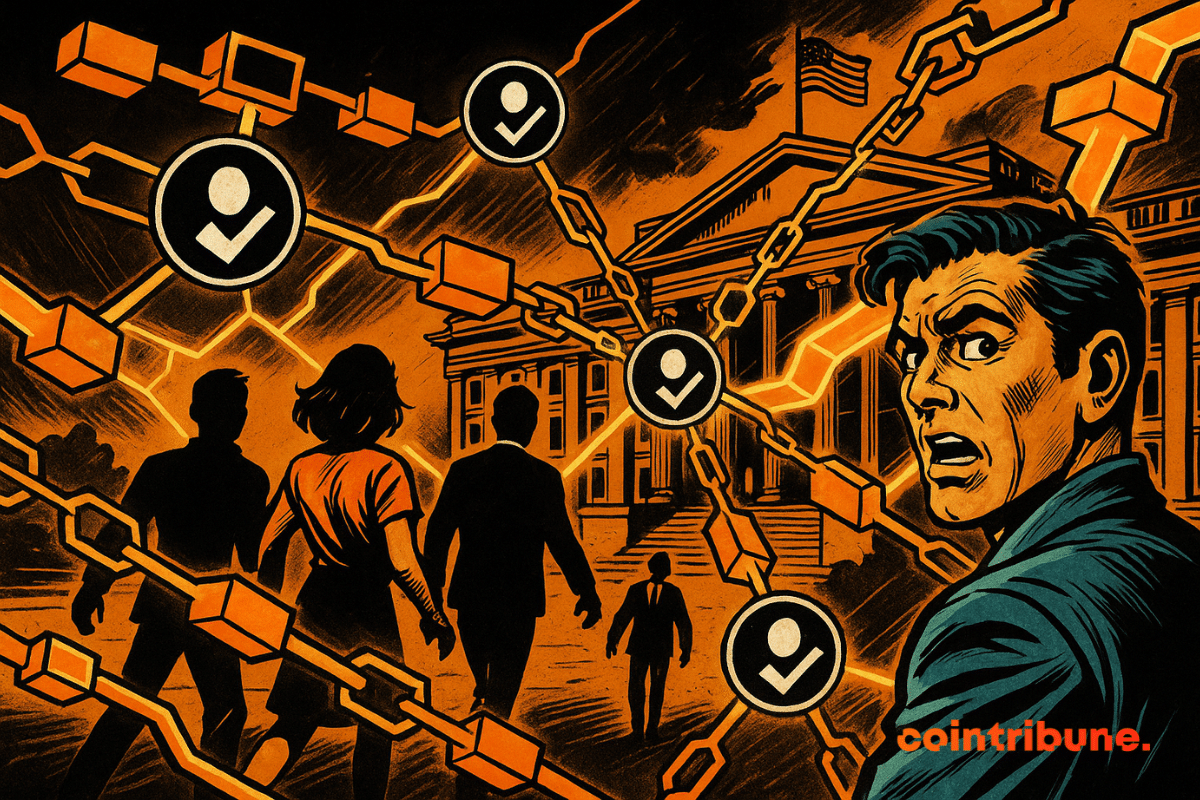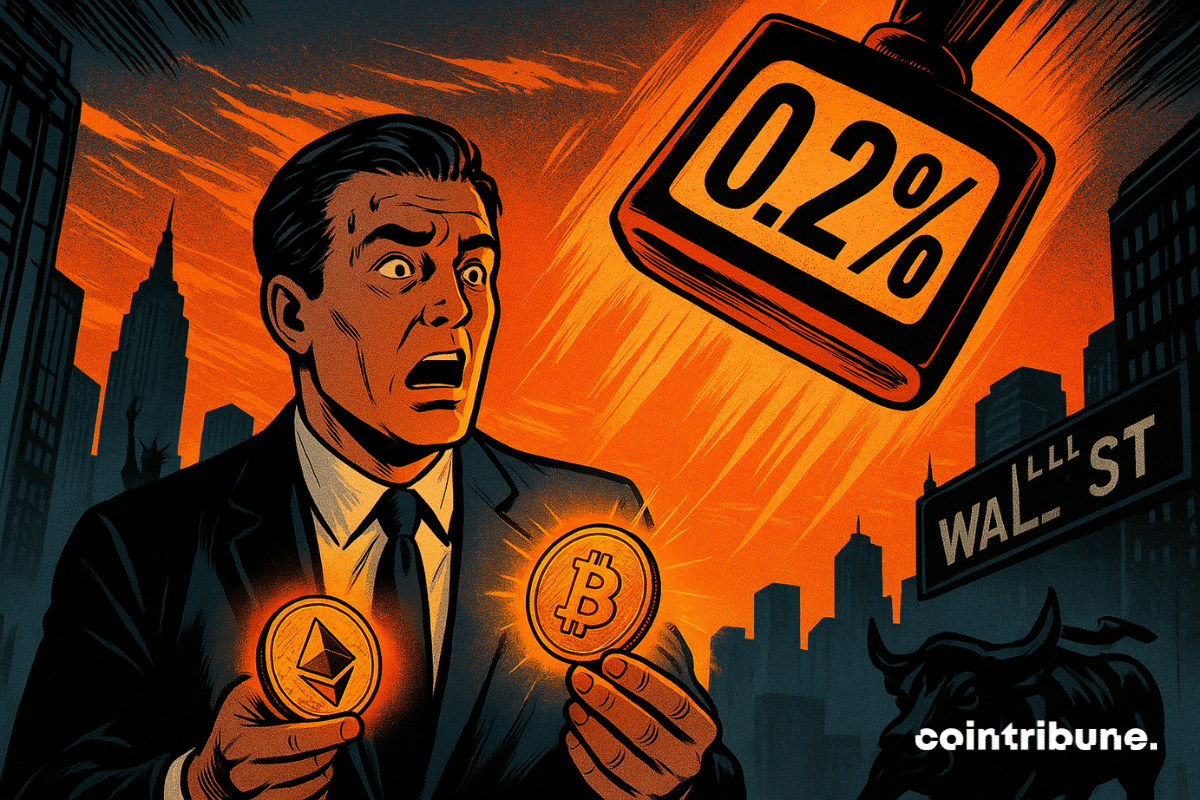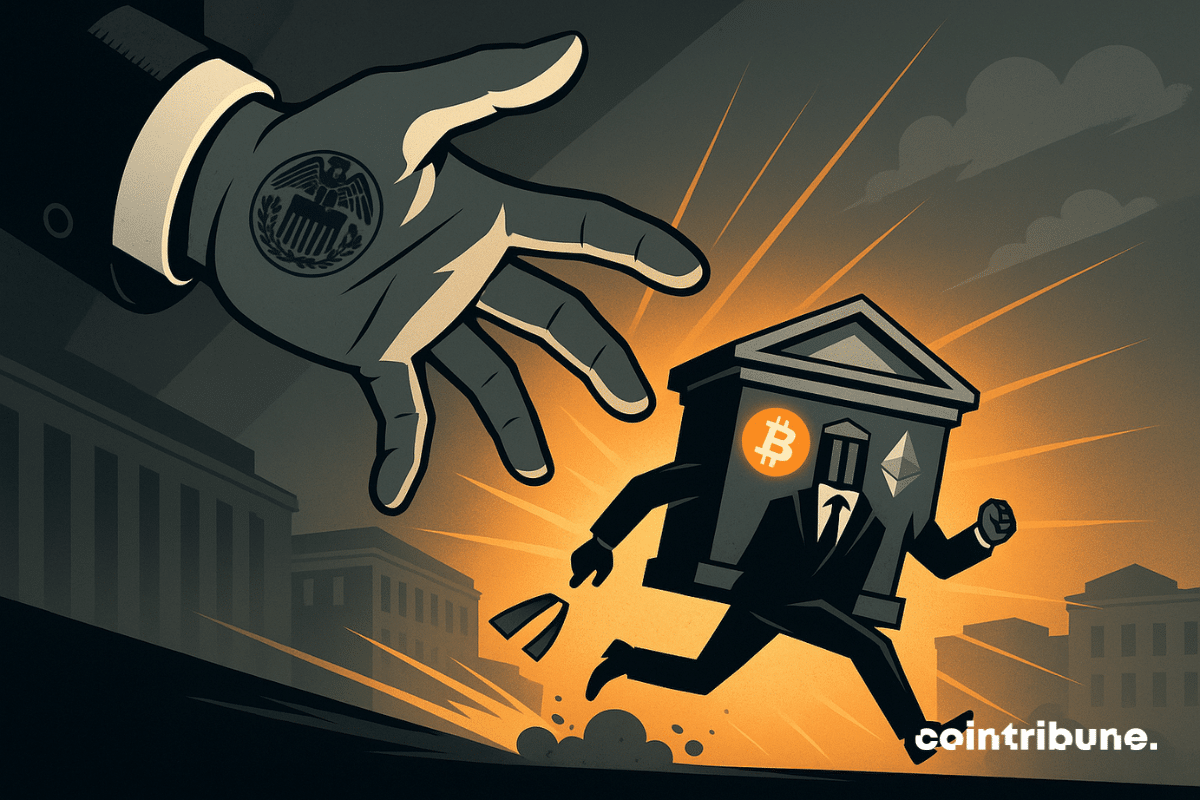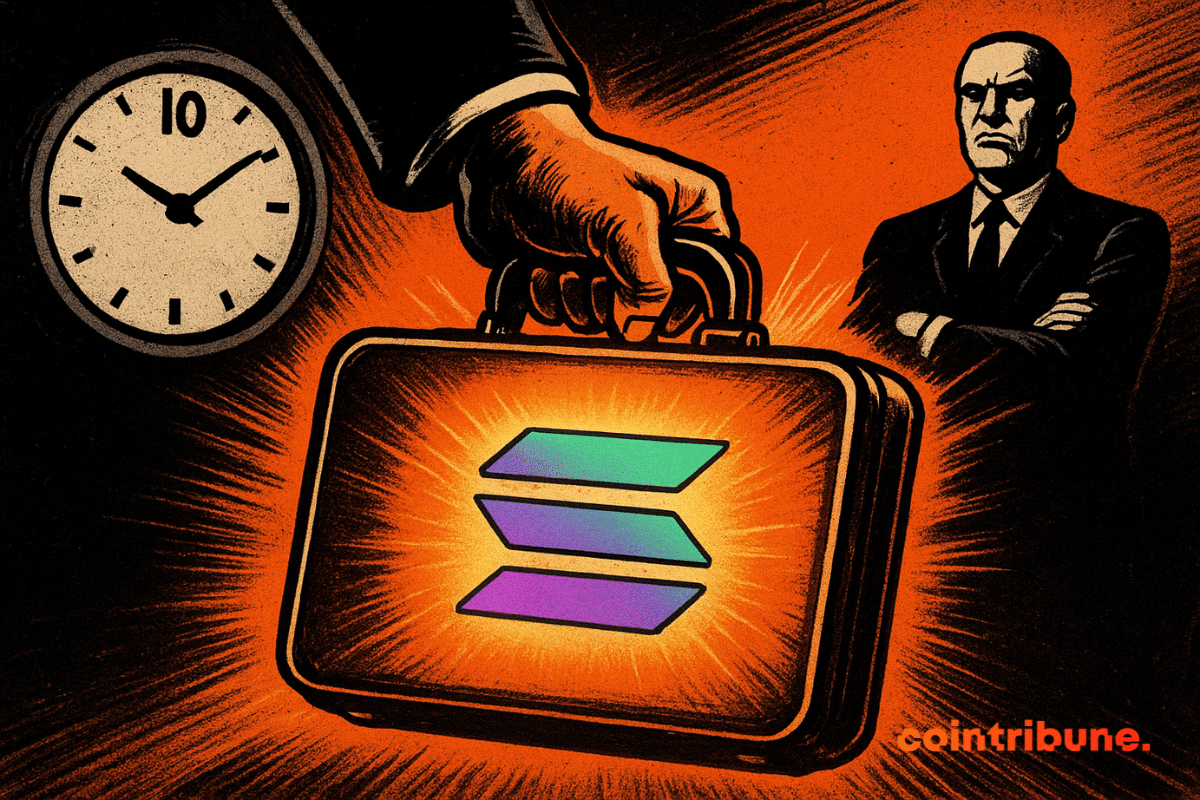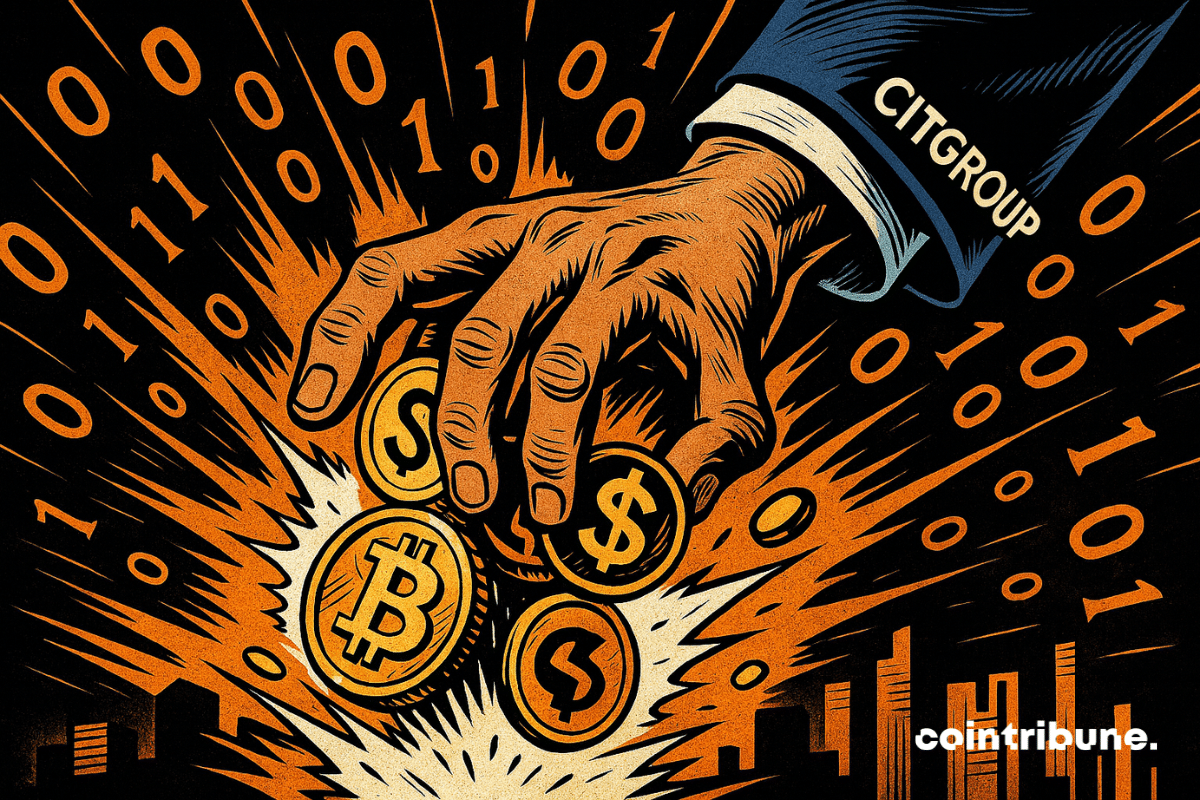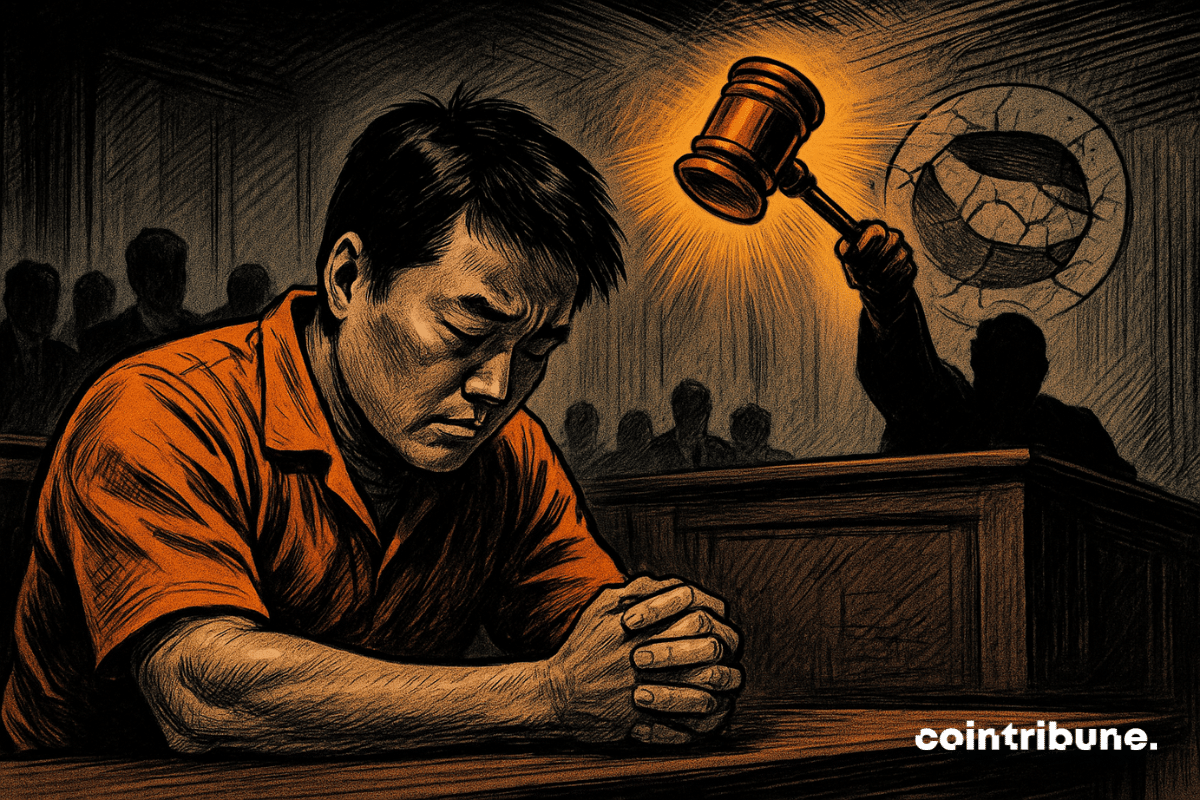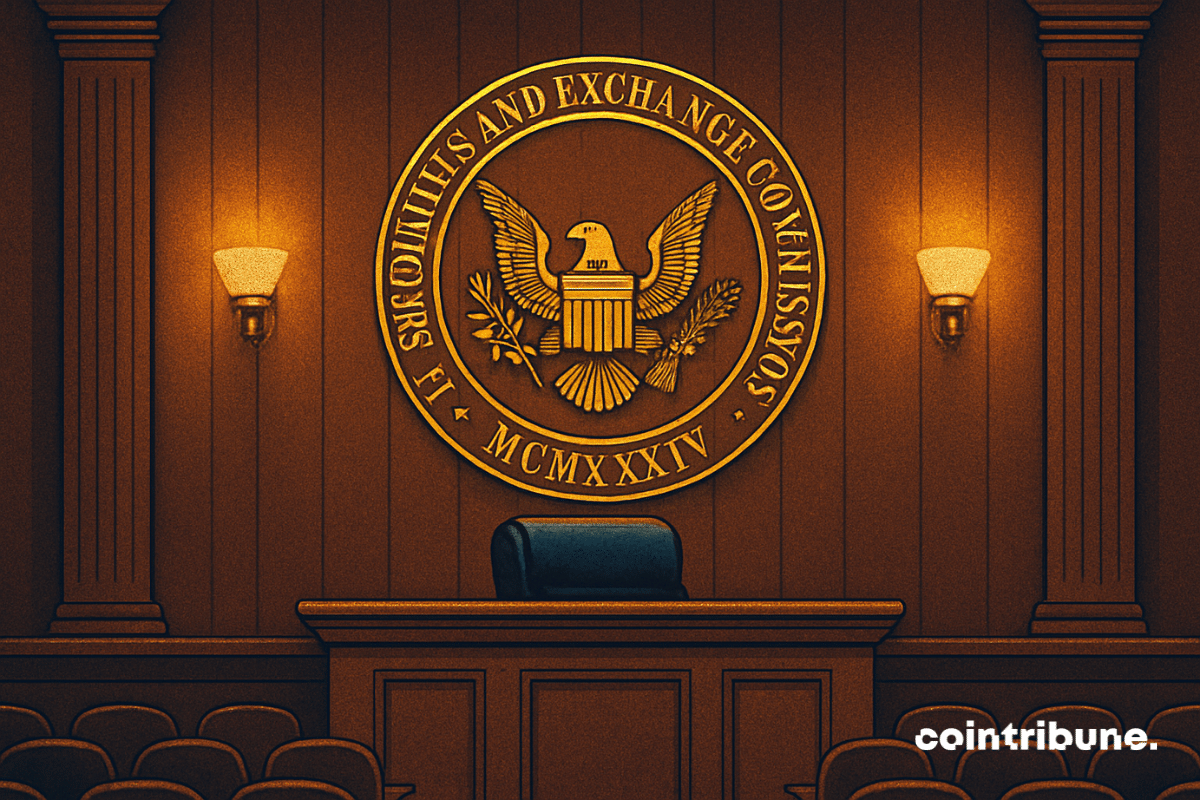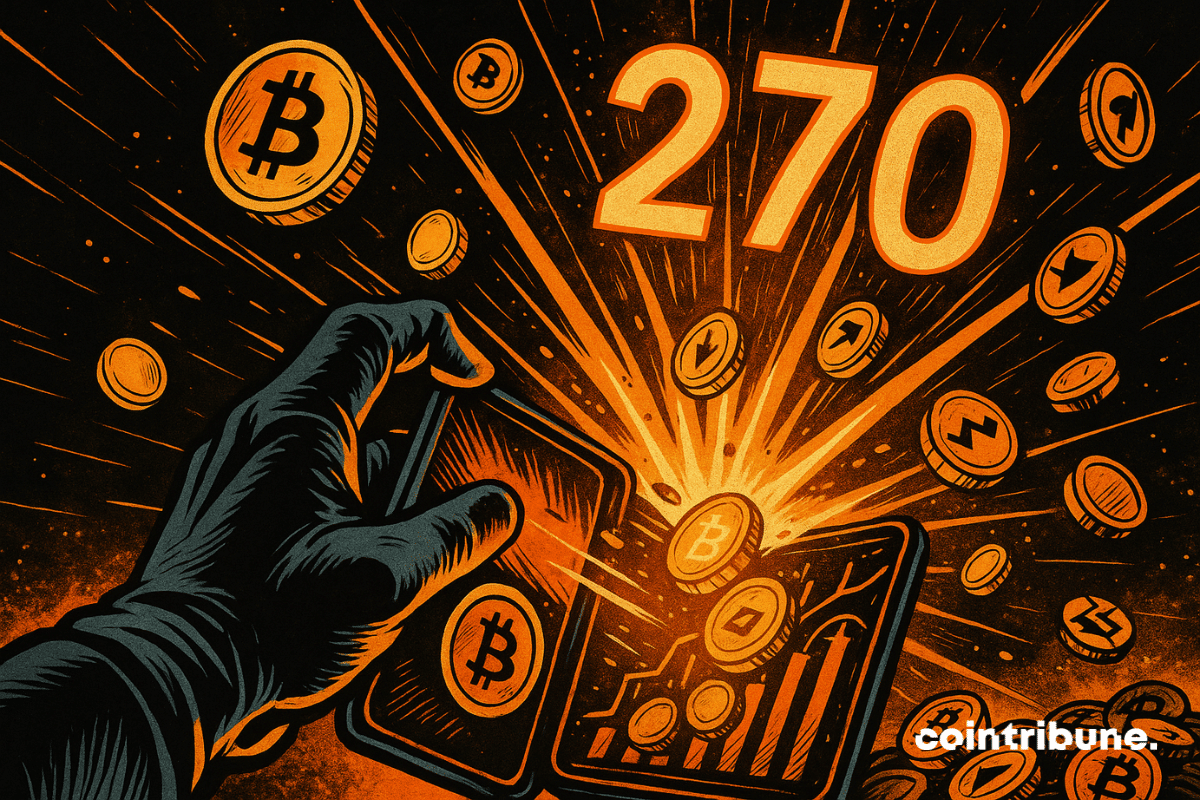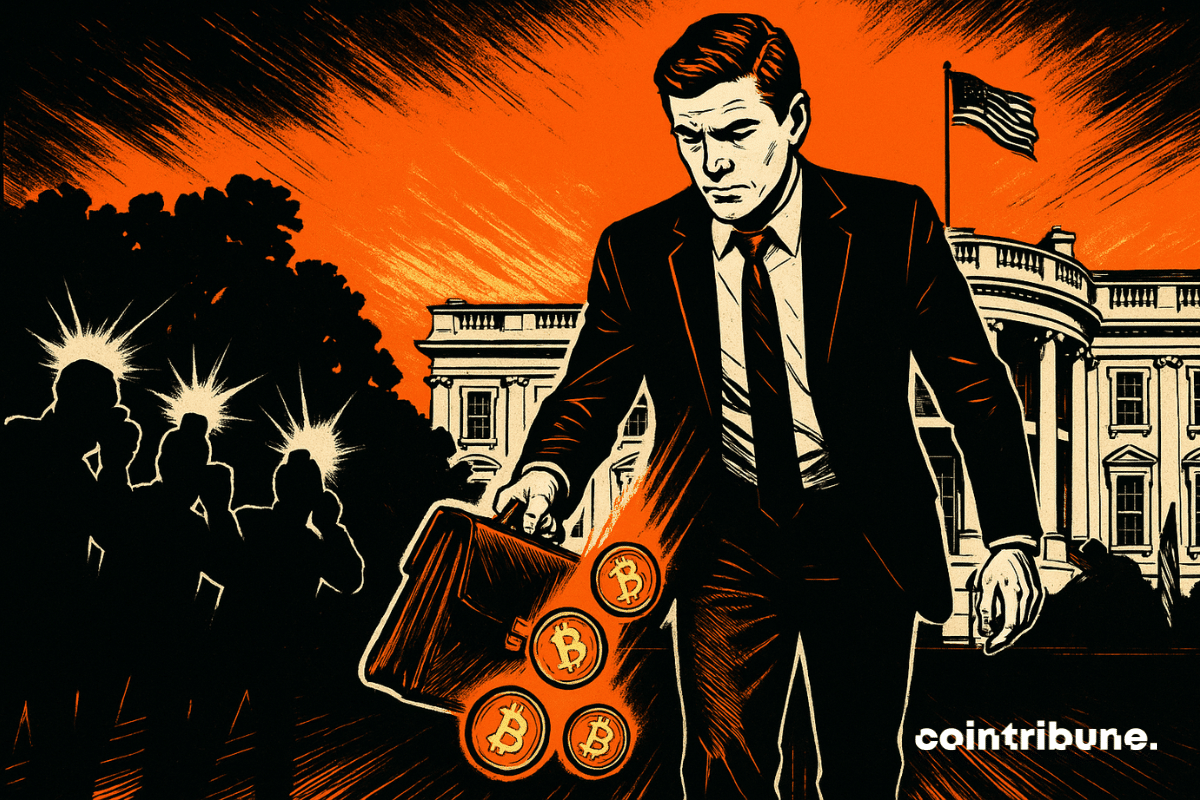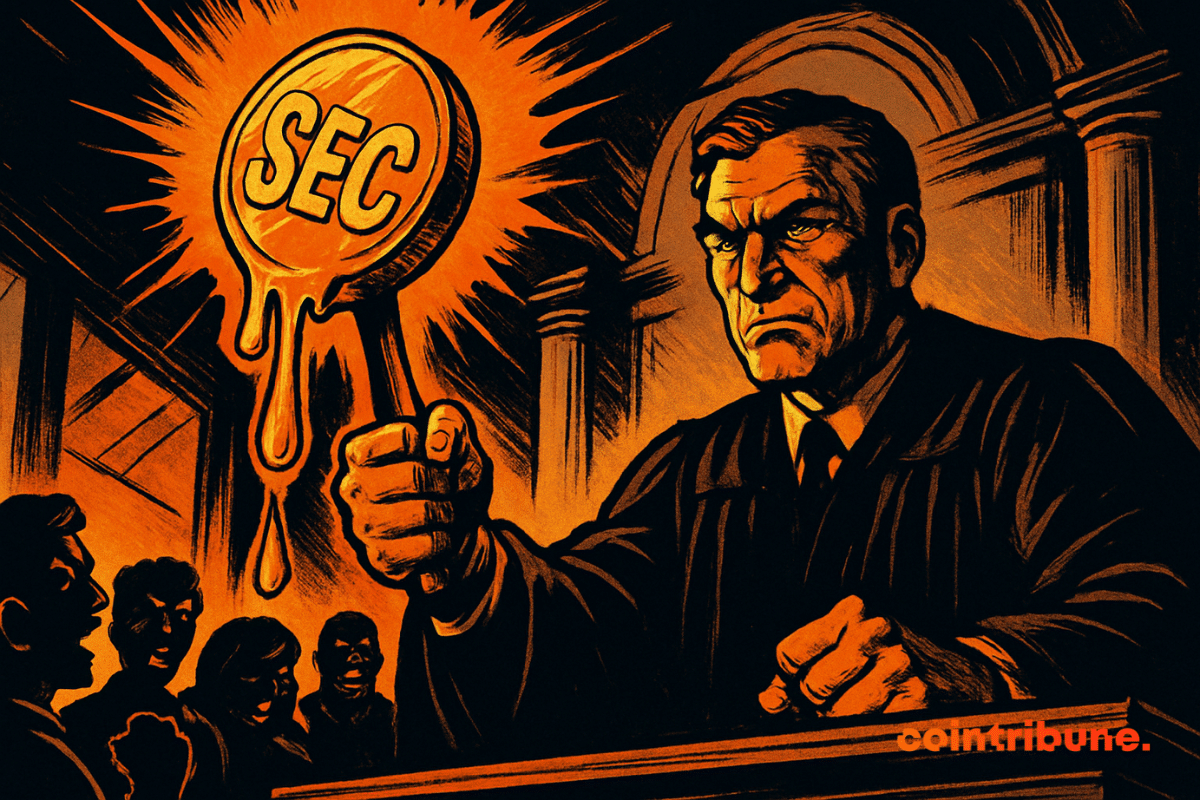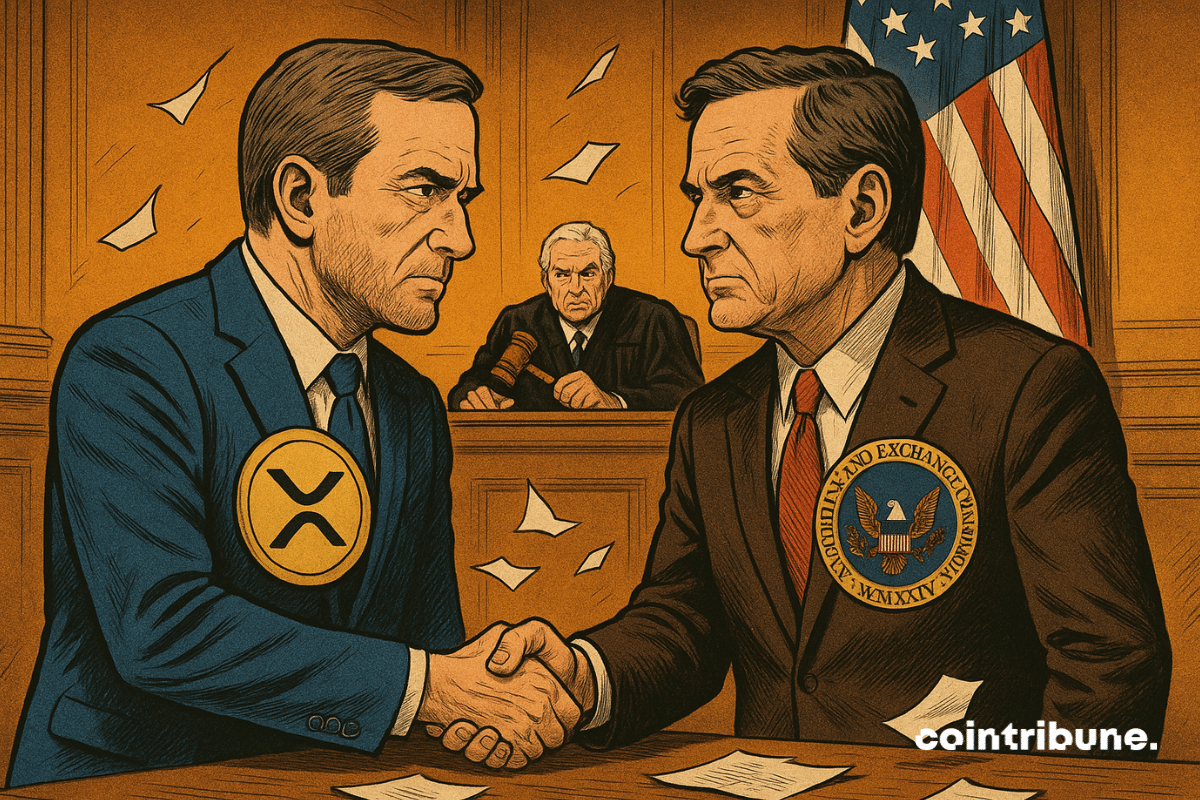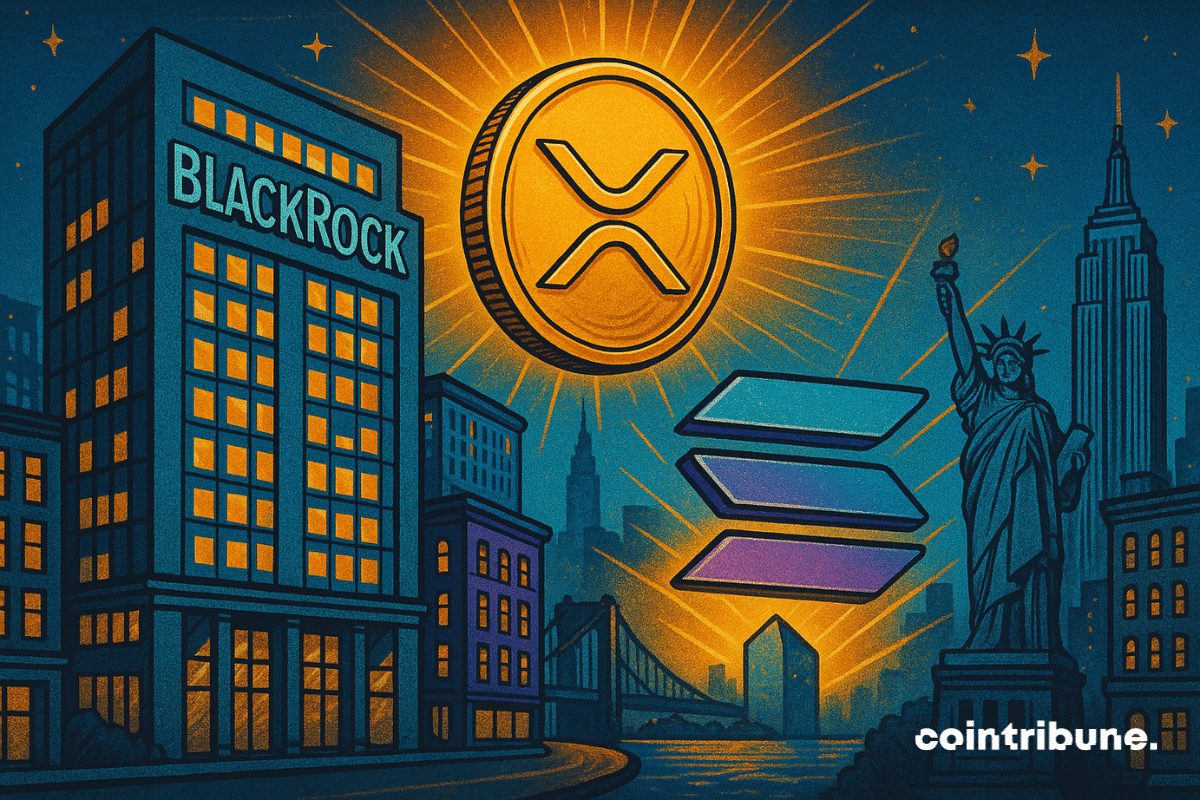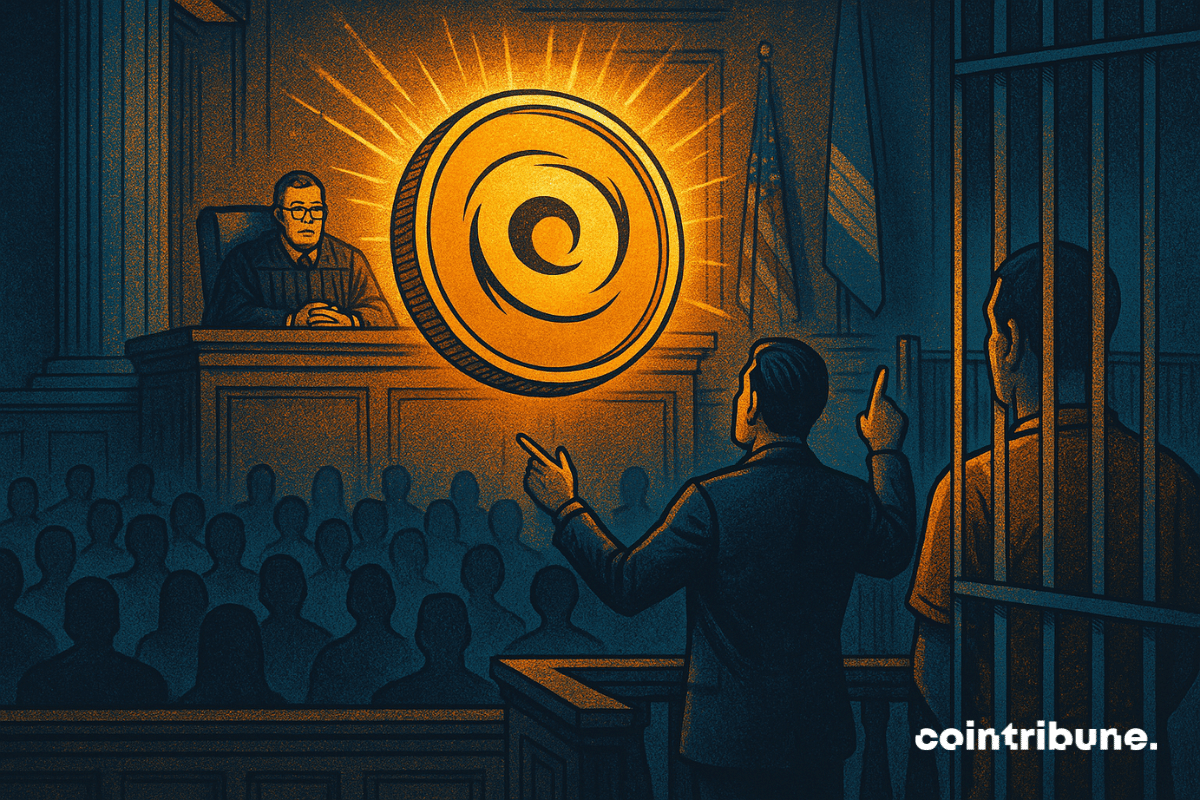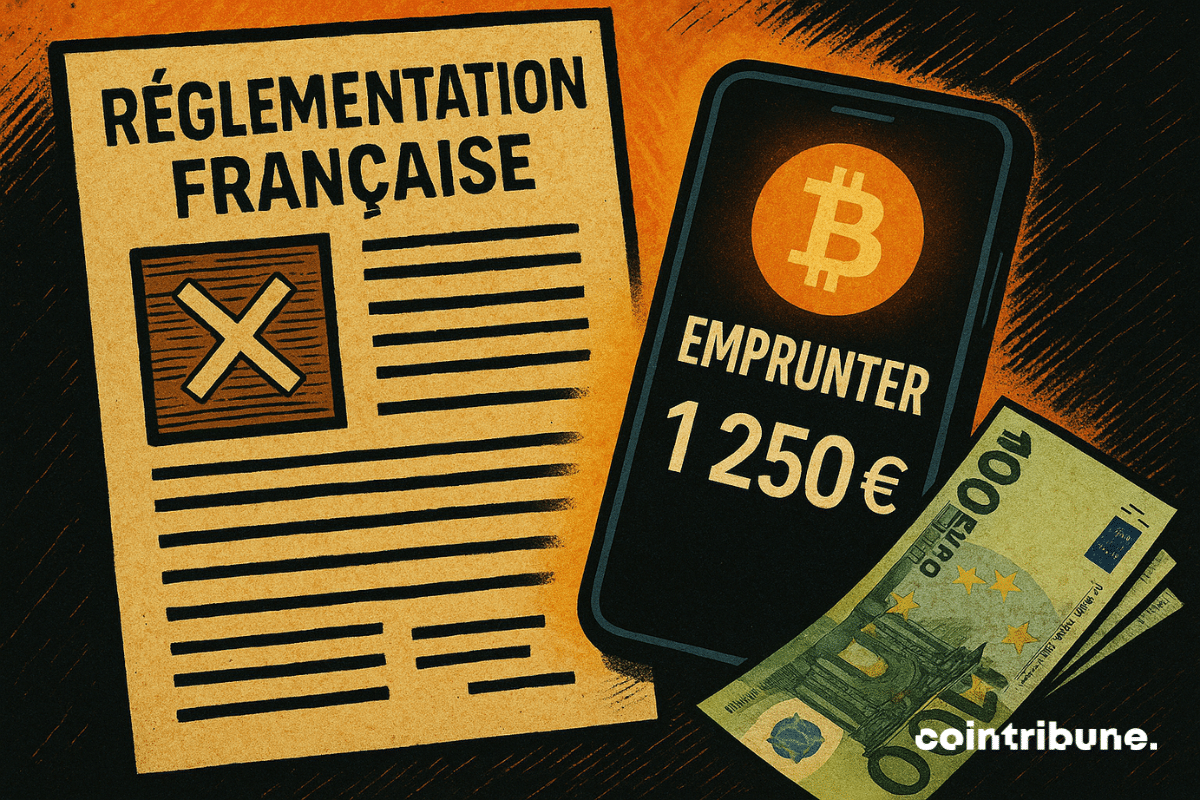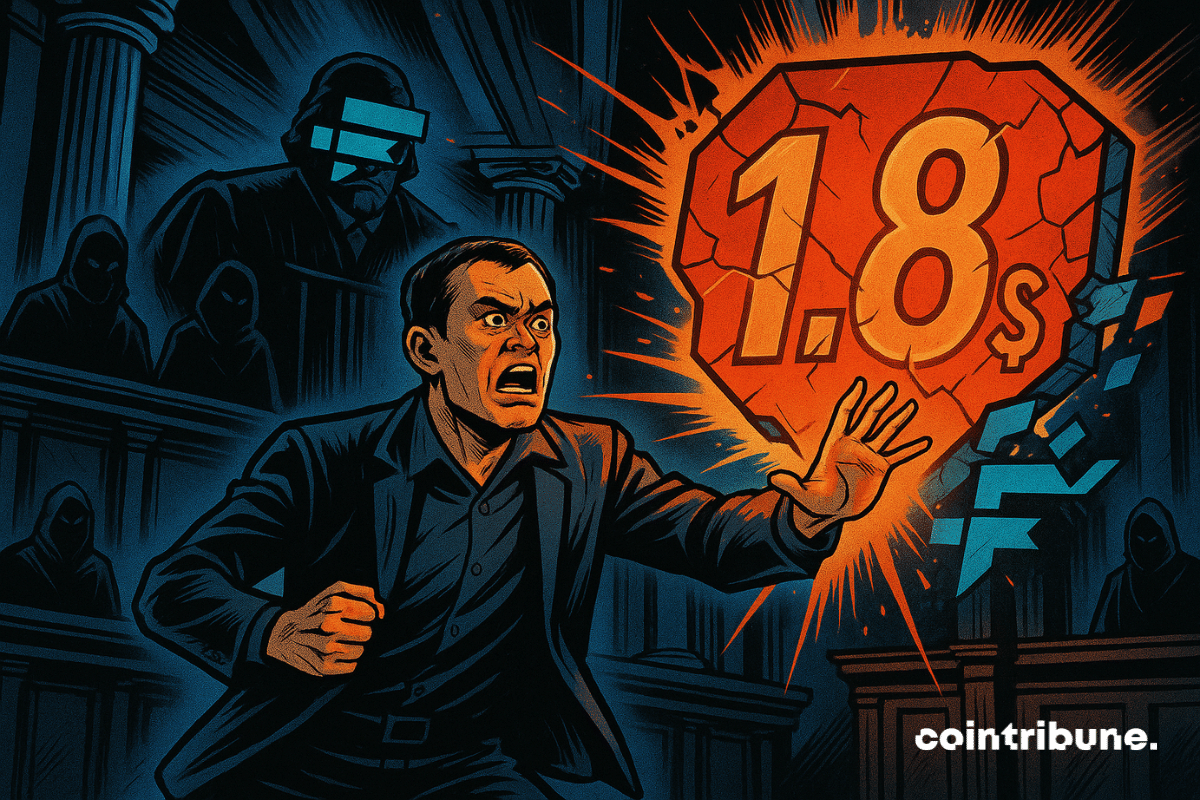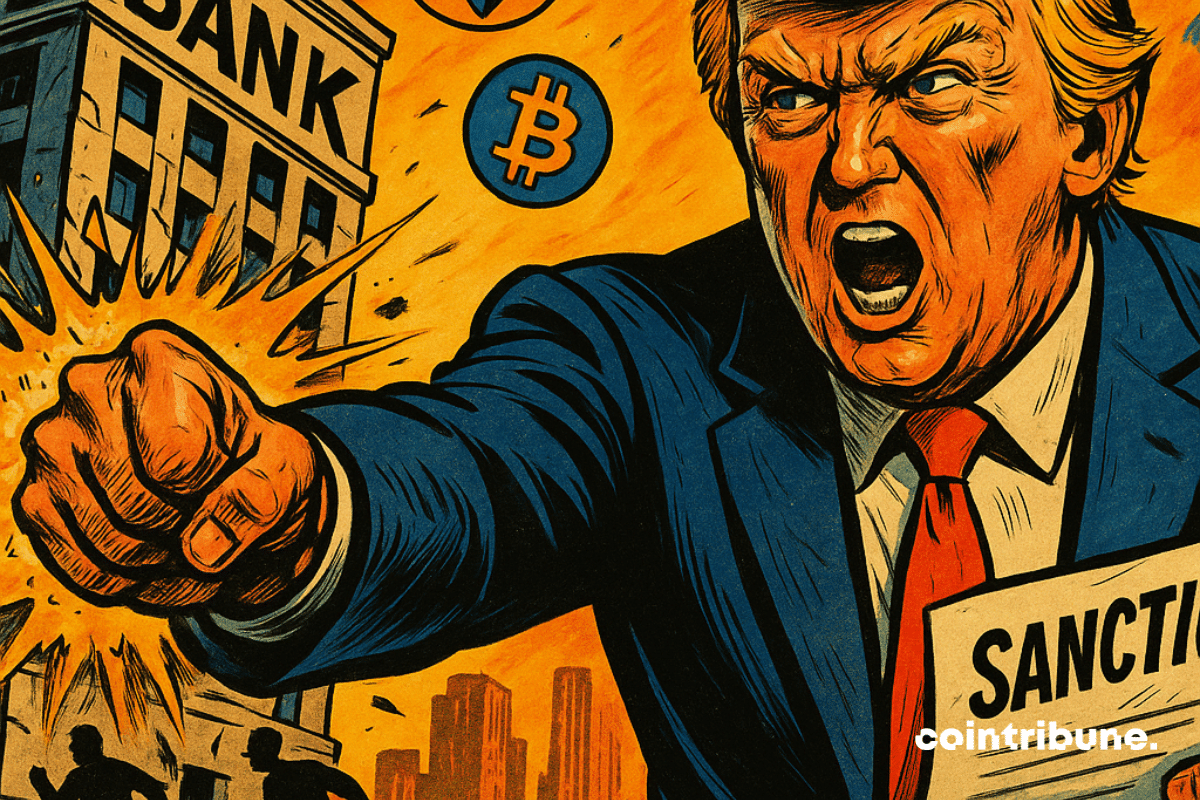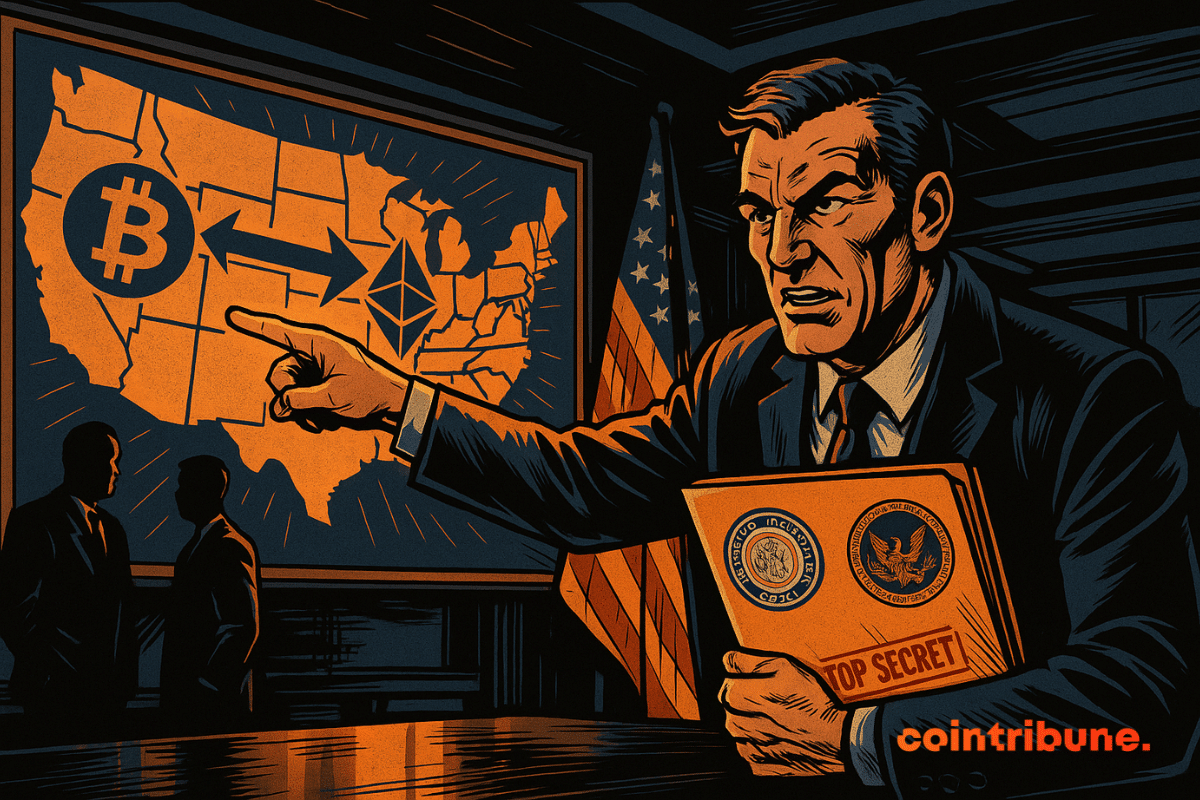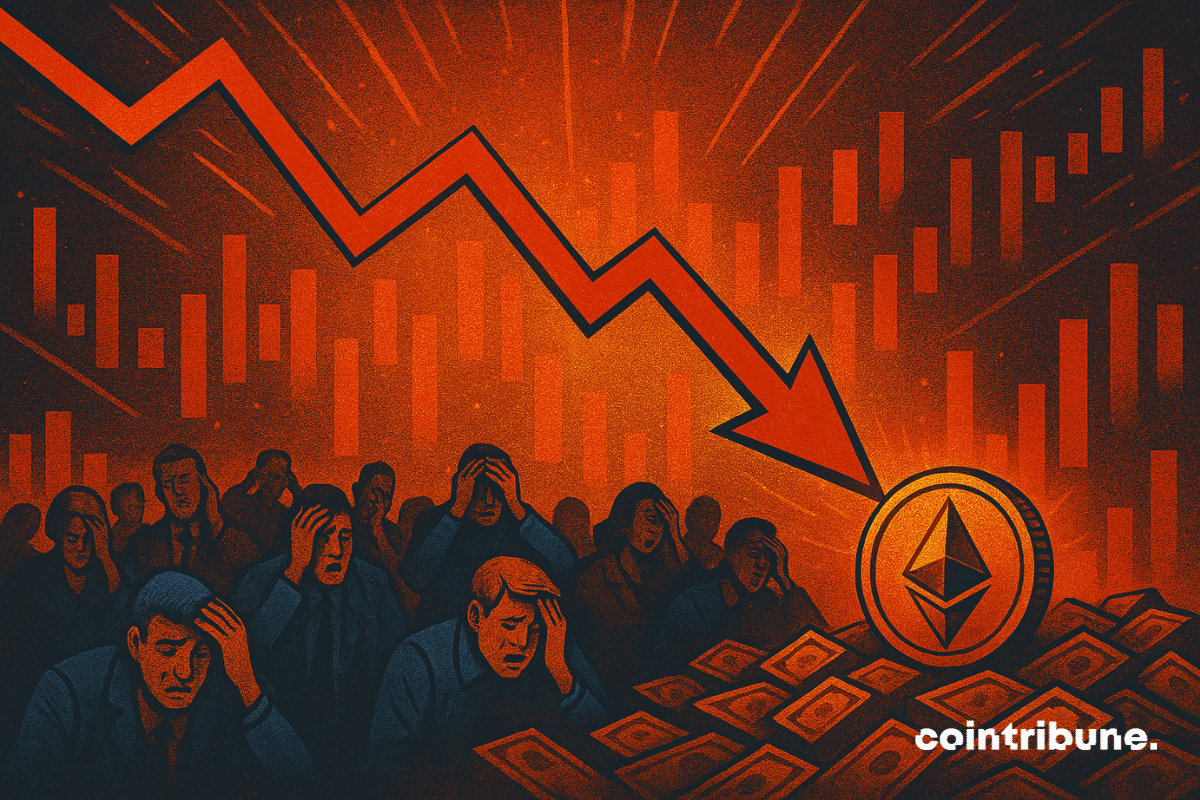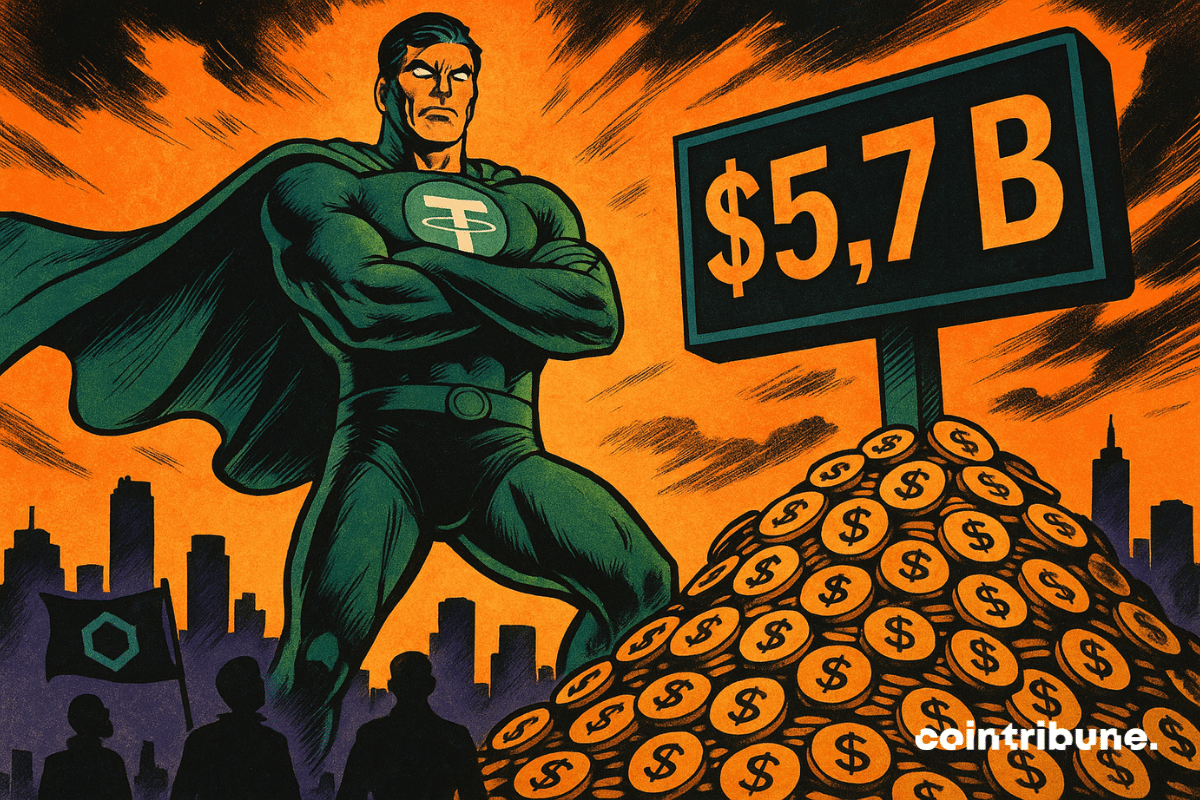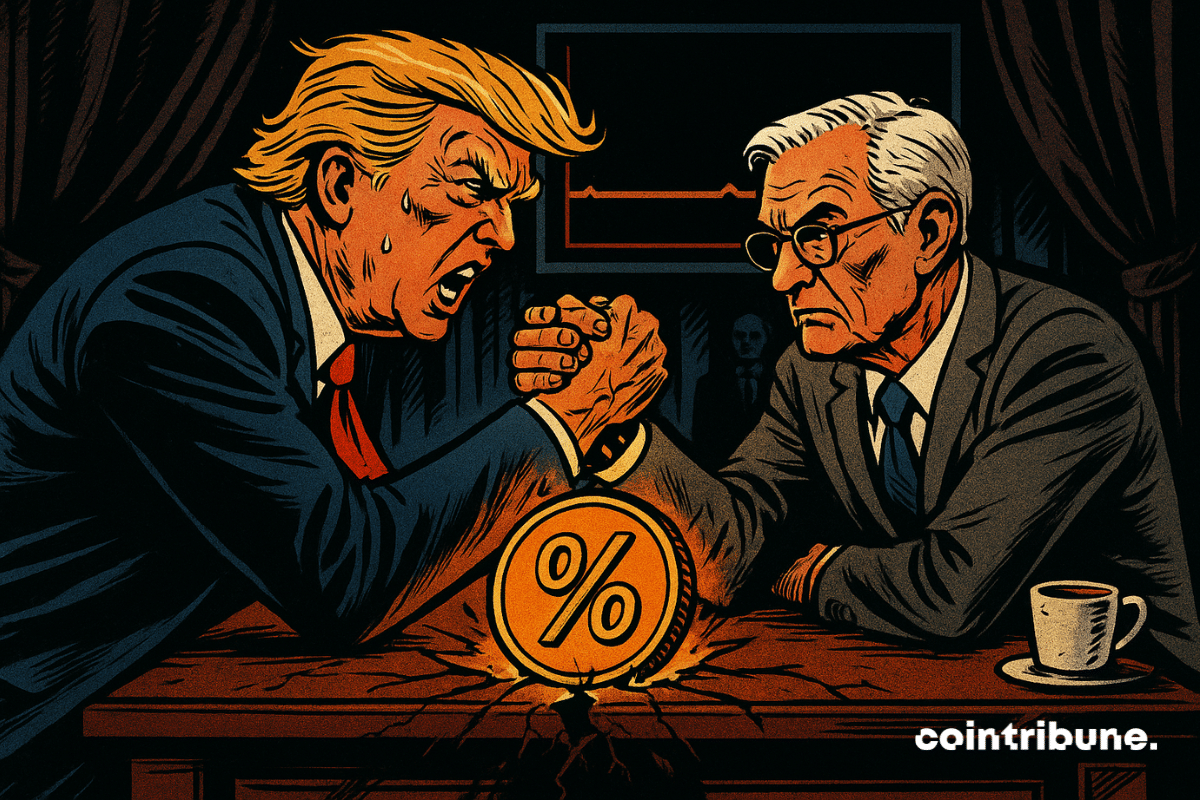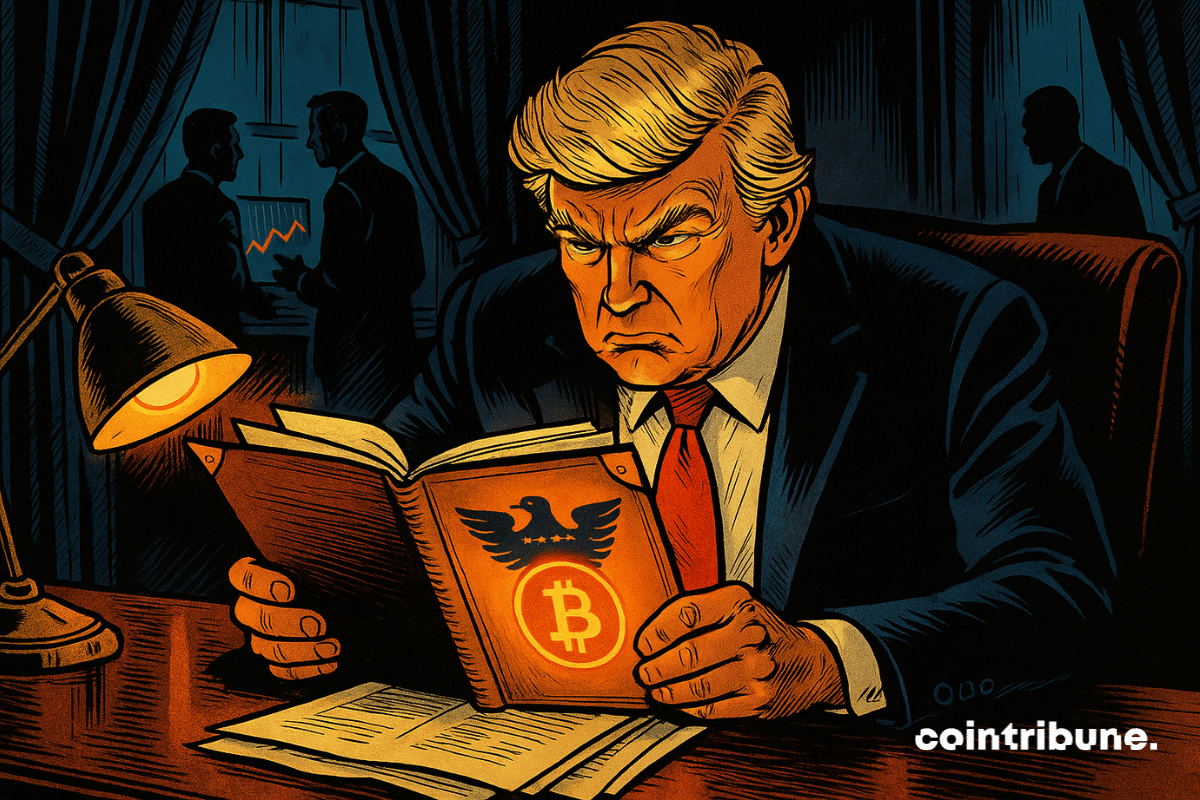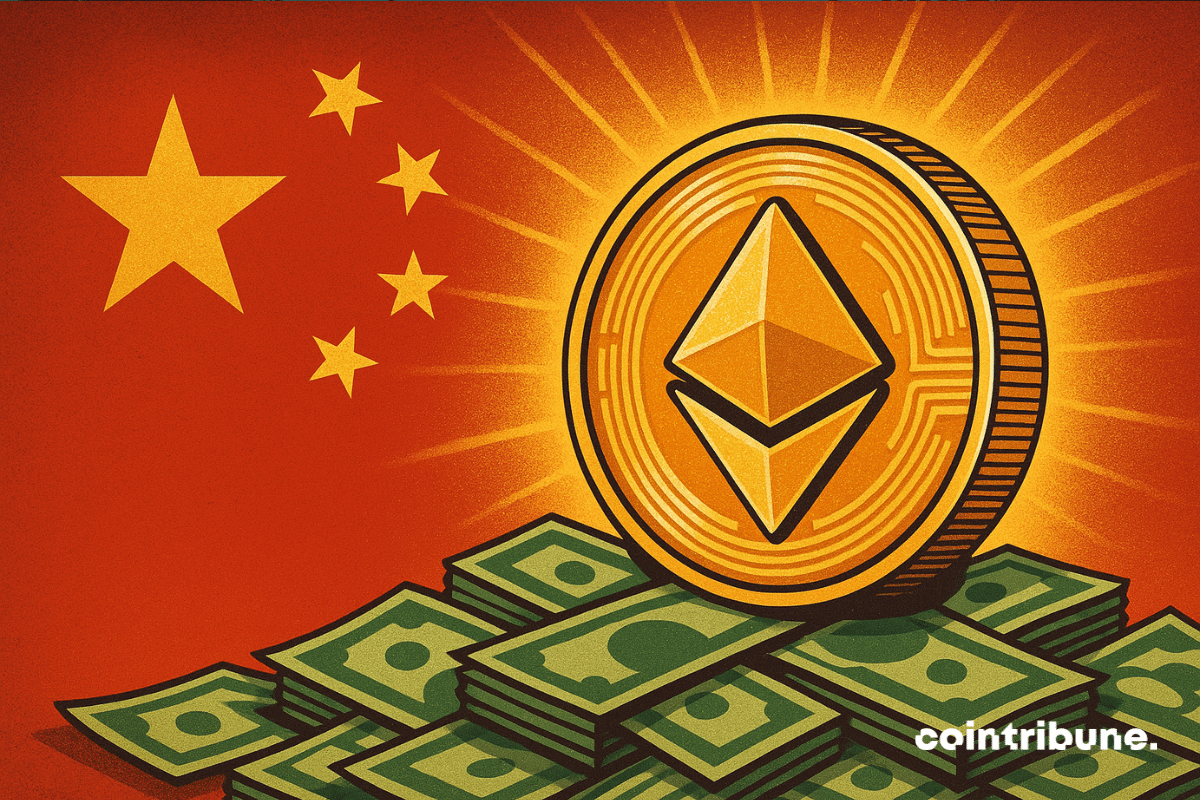Crypto ETFs blocked, Trump put on hold, and the SEC playing for time: behind regulatory delays, a strange political ballet resembling regulatory poker.
Theme Crypto regulation
The US Department of the Treasury opens a public comment period until October 17, 2025, to assess cutting-edge technologies in the fight against money laundering and sanctions evasion. This approach is directly part of the implementation of the Genius Act, the historic legislation signed by Donald Trump that revolutionizes the regulation of stablecoins. But which technologies are US authorities really scrutinizing?
When Uncle Sam plays the DeFi watchdog: he quickly slips biometric identifiers into crypto contracts. Freedom takes a hit... or two.
A new proposal in the New York State Assembly aims to impose a small tax on cryptocurrency sales and transfers. Assemblymember Phil Steck has introduced legislation seeking a 0.2% excise tax on digital asset transactions, including cryptocurrencies and non-fungible tokens (NFTs). The bill, if passed, could reshape the way the state approaches digital finance while channeling revenue into school-based substance abuse prevention programs.
After several years of heightened caution, the US Federal Reserve changes course regarding banks' crypto activities. The institution ends its specific monitoring program. It believes, indeed, that the risks linked to digital assets are now better understood and manageable within the traditional supervisory framework.
U.S. Solana exchange-traded funds (ETFs) have witnessed another setback in the buildup to their mainstream debut. According to recent reports, the U.S. Securities and Exchange Commission has suspended discussions over a possible SOL ETF approval, with the decision timeline extended to October 16.
Citigroup bank, once hesitant, now wants to keep your crypto like you keep gold bars: stablecoins in the vault, ETFs in the pocket, all under Washington's watchful eye.
Terraform Labs co-founder Do Kwon has admitted guilt to two U.S. criminal charges tied to the $40 billion collapse of TerraUSD and Luna. The South Korean entrepreneur entered the plea in the Southern District of New York after earlier denying all charges. The agreement with prosecutors includes financial penalties of up to $19 million and a recommendation for a reduced prison term.
The U.S. Securities and Exchange Commission is shifting its focus toward building a clear regulatory framework for cryptocurrency markets following the conclusion of its nearly five-year legal battle with Ripple Labs.
An Ethereum developer known as “Fede’s Intern” has been detained in Turkey amid allegations of helping users misuse the blockchain. The case has caused hesitations within the crypto community, however no actual charges have been validated at this moment.
The future of stablecoins is taking shape in this colorful and often unpredictable world of cryptos. Records are breaking one after another, driven by massive adoption and piling innovations. And while some see it as a simple fad, others bet that this wave will not stop anytime soon. The numbers speak for themselves... and they have rarely been so eloquent.
Between boldness and stubbornness, Bukele launches his "Bitcoin banks": one foot in global finance, the other in crypto, and the IMF coughing in its tie.
In Washington, crypto policy loses one of its most prominent faces. Bo Hines, propelled at the end of 2024 to the head of the Presidential Council of Advisers for Digital Assets, leaves his position after only a few months. A key figure in the system wanted by the Trump administration to make the United States a global blockchain hub, he moves to the private sector. His departure raises a central question: will the White House be able to maintain the momentum given to its crypto strategy?
The U.S. Securities and Exchange Commission’s (SEC) statement regarding liquid staking has, as expected, drawn different views and opinions across all corners of the crypto space. Although some believe that this nonbinding guidance could help drive institutional and retail adoption, others have raised concerns over the risk, potential challenges and key legal hurdles.
Ripple and the SEC have ended their five-year court battle, dropping appeals and leaving XRP’s future open for potential gains.
Blackrock may be preparing to expand its crypto ETF lineup with spot funds for XRP and Solana, according to ETF expert Nate Geraci. The prediction comes as institutional interest in alternative crypto assets heats up and the race for market share intensifies.
A jury in Manhattan has found Tornado Cash co-founder Roman Storm guilty of operating an unlicensed money transmission business, while deadlocking on more serious charges of money laundering and sanctions violations tied to the North Korean hacker group Lazarus.
Would Architect aim to become the Moody’s of Web3? A credit rating project based on blockchain is shaking the crypto sphere. A mutation in progress or just a publicity stunt? Discover what is really happening.
A law passed unnoticed allows borrowers to mobilize their digital assets as collateral. A discreet but symbolic turning point for the integration of cryptos into traditional finance.
Crypto: Changpeng Zhao denies all responsibility in the fall of FTX and asks for the cancellation of the 1.8 billion lawsuit. Details here!
Donald Trump plans to sign a presidential decree to protect crypto companies and other entities targeted by banking exclusion. The text will order regulators to investigate banks' practices and sanction those that have broken the law by closing accounts for political reasons
Trump dreams of a crypto eldorado, the CFTC sprints, the SEC follows… but behind the speeches, who really regulates this digital rush westward? Regulatory suspense guaranteed.
U.S. stocks suffered a blow on August 1, losing $1.1 trillion in value after President Donald Trump reportedly fired the head of the Bureau of Labor Statistics, Erika McEntarfer. The decision came hours after a disappointing July jobs report.
While some tighten their belts, Tether stacks billions in Treasury bonds. Crypto miracle or well-oiled cash machine? You be the judge, numbers to support.
The SEC has announced the launch of “Project Crypto,” an initiative to modernize securities regulations and turn the United States into the global hub for crypto and blockchain innovation.
Ever since crypto assets entered the financial circles, many industry participants, including stakeholders, have called for a clear classification of these blockchain assets. Strategy’s (formerly MicroStrategy) CEO, Michael Saylor, has also lent his voice, calling on the U.S. government to give a set definition to digital securities and commodities.
The standoff between Donald Trump and the Federal Reserve is intensifying. The president accuses the institution of sabotaging the economic recovery by refusing to lower interest rates quickly. Ahead of a decisive meeting and amid growing trade tensions, the Fed is under heavy fire. In an increasingly politicized environment, the central bank’s independence is being tested as markets scrutinize its every signal while the U.S. economic trajectory remains uncertain.
As cryptocurrencies reshape the global financial balance, the Trump administration reveals its strategic response. An anticipated report from the President’s Working Group on Digital Assets lays the groundwork for an explicit pro-crypto framework: innovation encouraged, regulation strengthened. This ambitious plan aims to propel the United States to the forefront of the technological race while asserting its economic sovereignty against the rise of rival actors.
E-commerce giant JD.com is getting ready to enter the stablecoin race as Hong Kong’s regulatory regime for digital currencies officially kicks off. The company has registered two potential stablecoin-linked entities, Jcoin and Joycoin, through its fintech arm JD Coinlink Technology, just days before the city’s new framework takes effect.
Interest in stablecoins is reaching unprecedented heights. As the market capitalization crosses the historic threshold of 270 billion dollars, Google searches are literally skyrocketing. Does this rush towards stable digital currencies coincide with the adoption of the GENIUS law?
